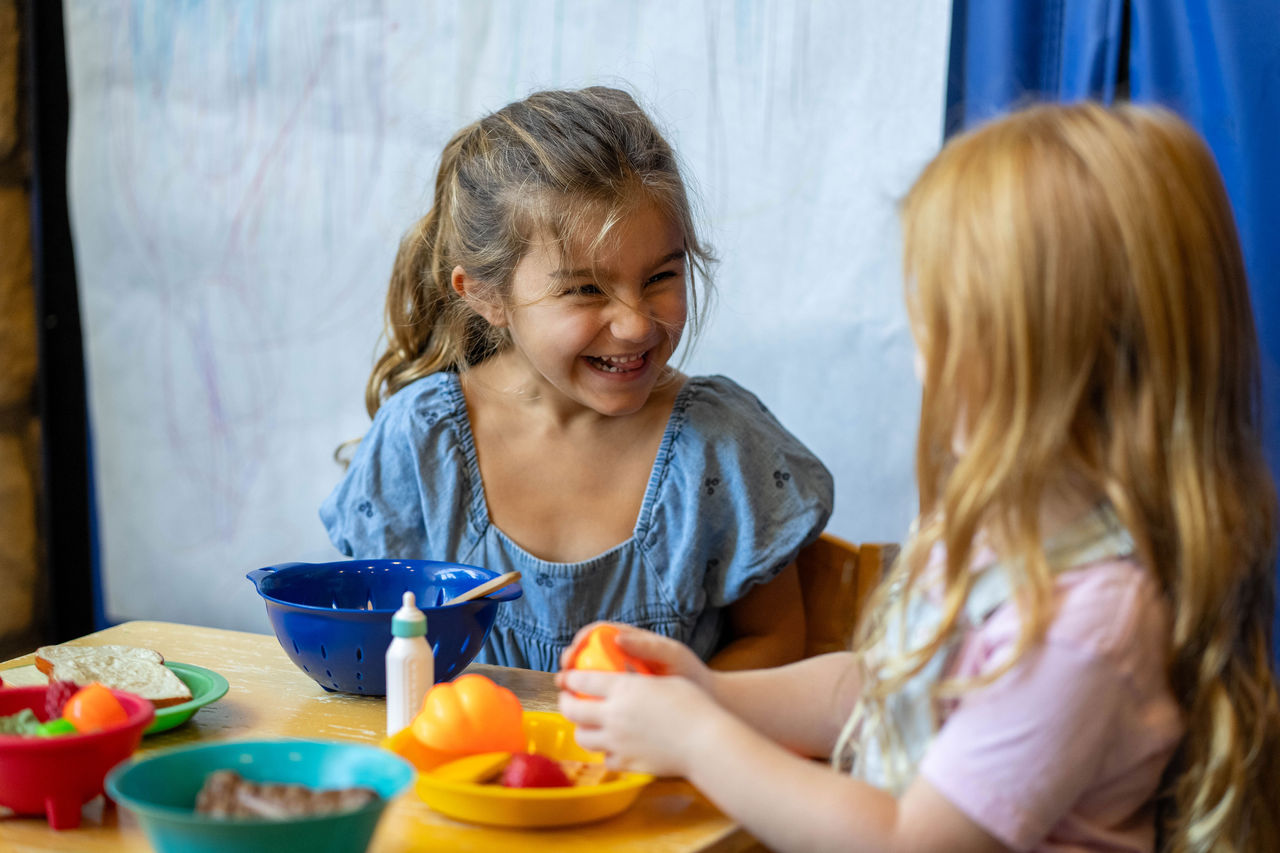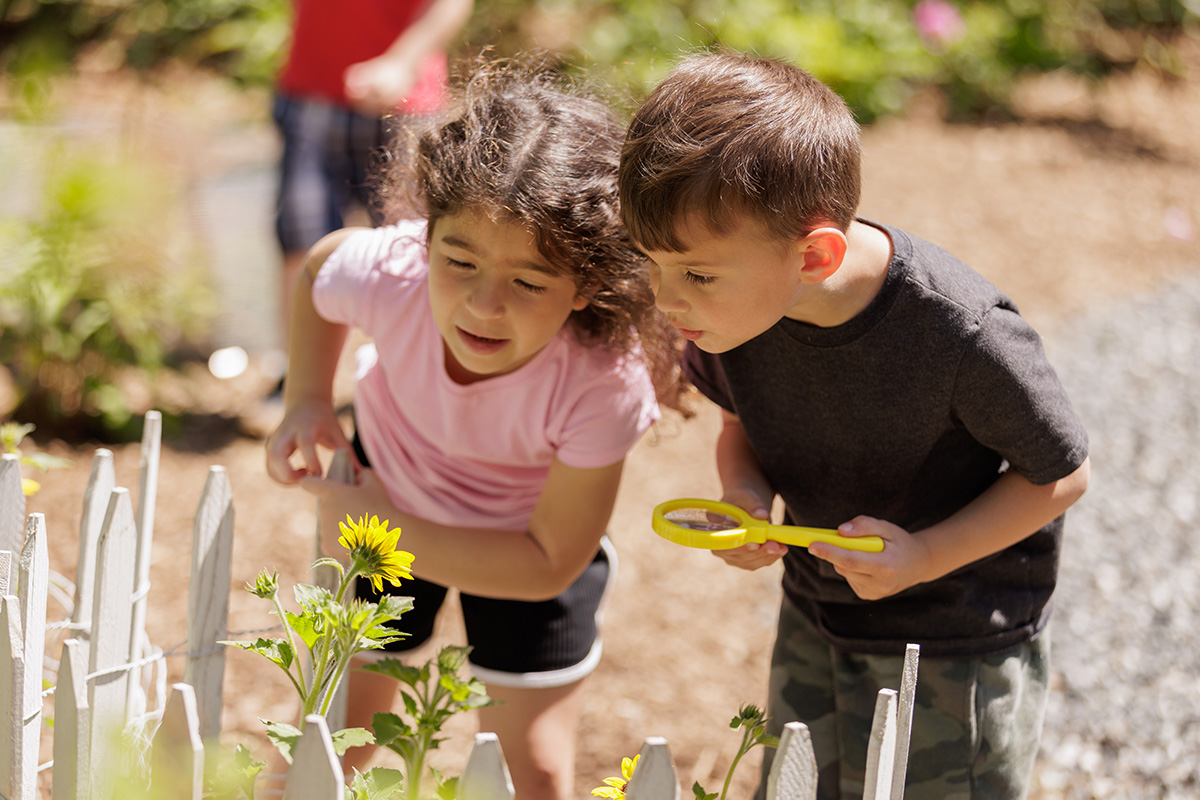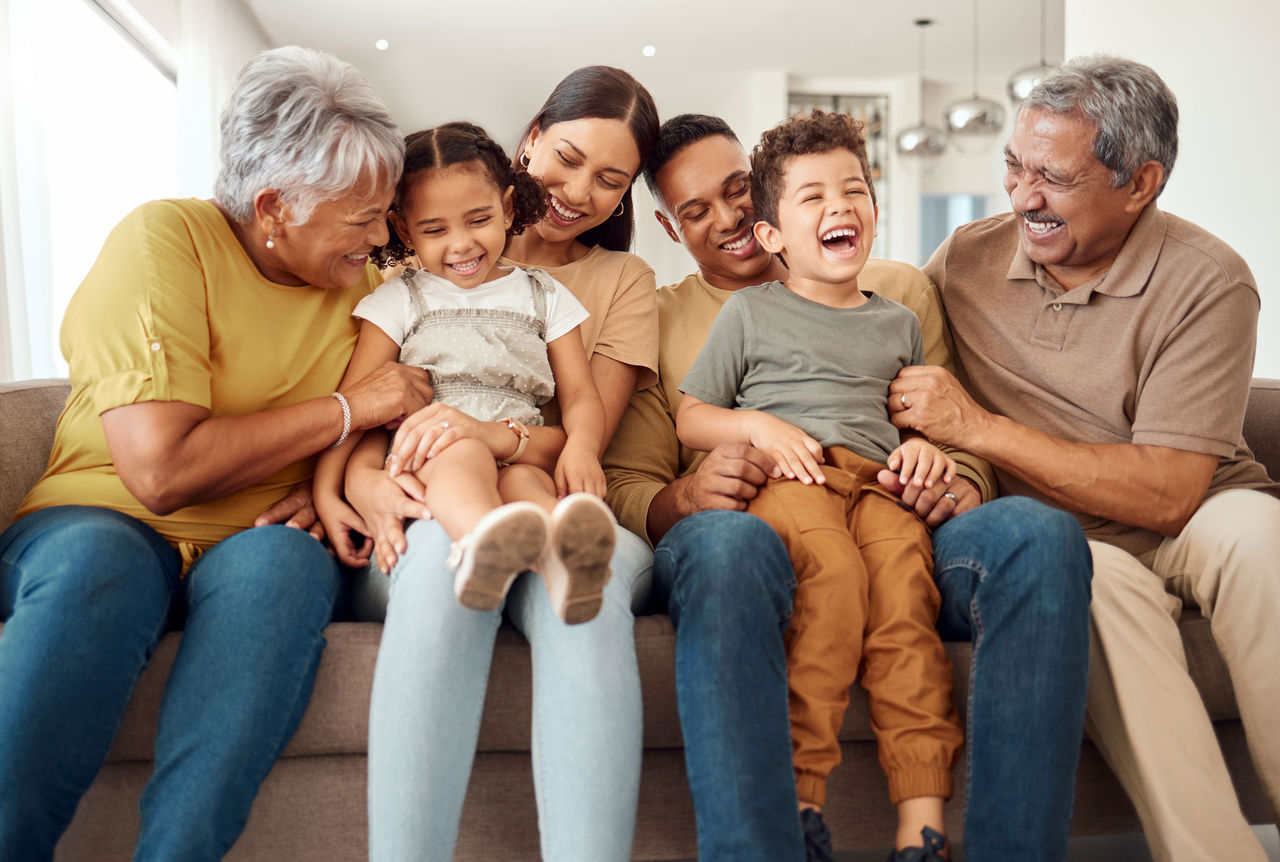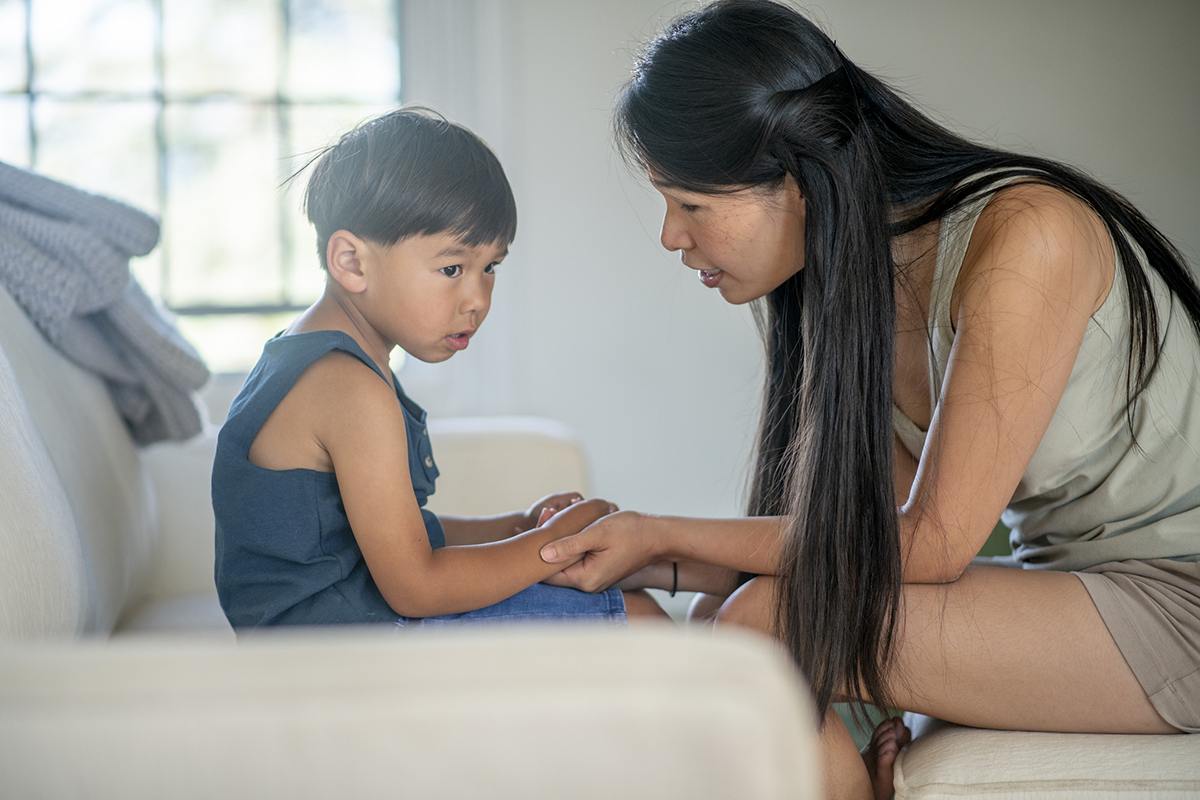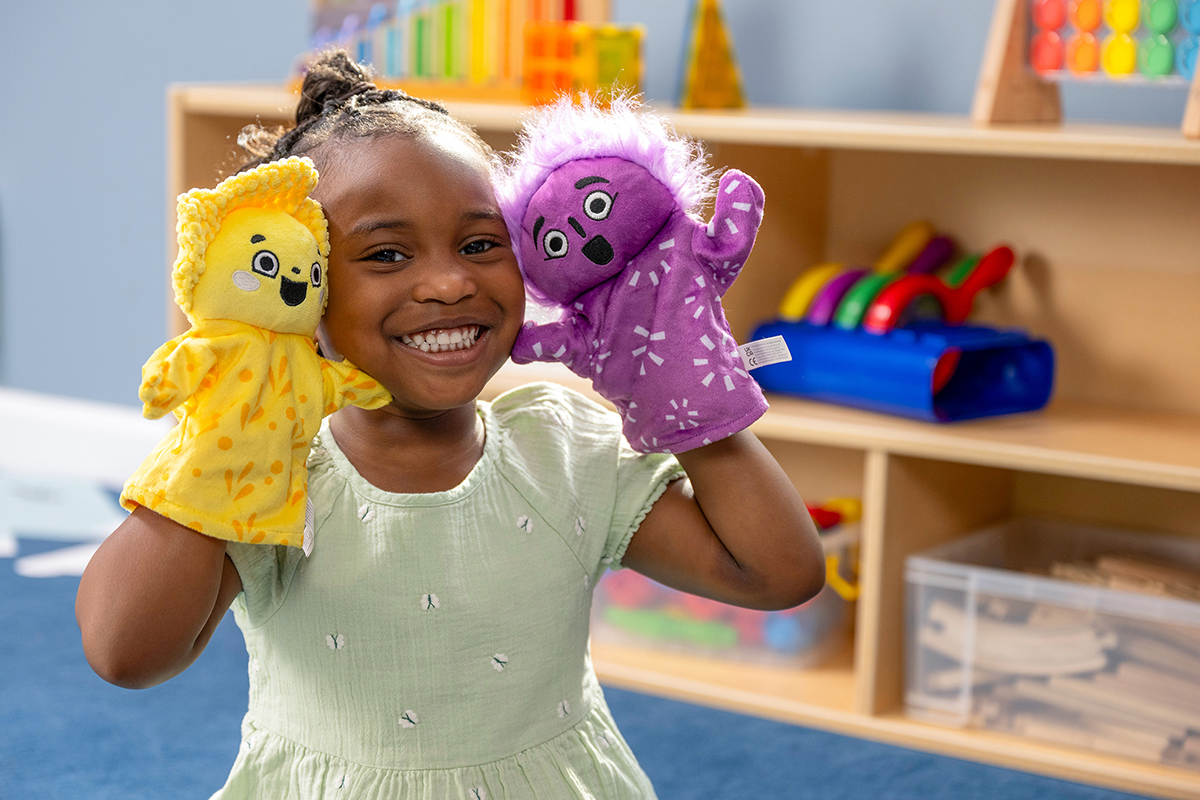Every smile, every shared game every moment of teamwork in preschool is helping shape who your child will become. Socialization in early childhood lays the groundwork for empathy, resilience and collaboration — skills that will carry your child through school and through life. In preschool, children don’t just learn letters and numbers; they learn how to be part of a community. Socializing with peers teaches them how to cooperate, communicate, solve problems and build relationships. At The Goddard School®, we create nurturing, play-based environments where social skills grow naturally. Our classrooms are designed to help children feel safe, supported and ready to explore the world around them with their friends!
What Does Socialization Look Like in Preschool?
Socialization in preschool means learning how to interact with others in a group setting. Whether it’s sharing toys, asking for help or offering a comforting hug, these small moments matter. Children begin to understand how their actions affect others, learn to take turns and practice expressing their feelings. Our teachers work closely with families to support this growth. They share observations and strategies, helping you reinforce these important skills at home, too.
How Social-Emotional Skills Take Root
When children feel seen and heard, they build the confidence to connect with others. Social-emotional development is about understanding their feelings and the feelings of others and then responding with empathy, patience and kindness. Here are a few examples of simple social-emotional activities that support healthy development:
- Role play. Pretending to be someone else or acting out a problem helps children understand different perspectives and practice empathy.
- Compliment circles. Giving and receiving kind words builds self-esteem and encourages thoughtful communication.
- Group games. Games like Follow the Leader or Simon Says teach listening, cooperation and turn-taking.
- Storytime chats. Asking questions like “How do you think the character feels?” helps kids explore emotions and practice empathy.
- Circle time sharing. Daily discussions build confidence, encourage listening and teach kids to contribute respectfully.
- Puppet conversations. Puppets can make tricky topics easier to talk about, giving children a safe way to express big feelings.
- Slumberkins. Through cuddly creatures and thoughtfully crafted stories, Slumberkins help children explore big feelings, practice empathy and build emotional resilience all in a way that feels playful and comforting. Whether it’s a story about managing frustration or a plush that reminds them they’re safe and loved, these tools help parents start meaningful conversations and support their child’s emotional growth beyond the classroom.
The Power of Play and Peer Interaction
Preschoolers learn best by doing. Through play, they figure out how to negotiate, compromise and solve problems together. Whether they’re building a block tower, taking turns at the sensory table or deciding on rules for a new game, they’re practicing real-world social skills every day. These lessons stick. Children who build strong social-emotional foundations in preschool head into kindergarten more confident, cooperative and resilient. They’re ready to form friendships, manage emotions and thrive in group settings.
Long-Term Benefits of Early Socialization
Early social experiences can have a lasting impact. Children are more likely to work well with others, handle stress more effectively and feel confident asking for help when needed. One study published in the Journal of Educational Psychology found that social skills gained in preschool were linked to better academic performance later on in life. Research from Harvard shows that self-regulation skills developed in early childhood are connected to higher achievement in high school. In other words: social-emotional learning isn’t just about friendships. It’s about preparing kids to succeed.
Give Your Child the Best Start
Preschool friendships might seem small but they’re the start of something big. From learning to take turns to understanding how others feel, these early lessons in connection help your child grow into a kind, confident and capable person. By choosing a preschool that values social-emotional learning, you’re giving your child the tools they’ll carry with them for years to come.
